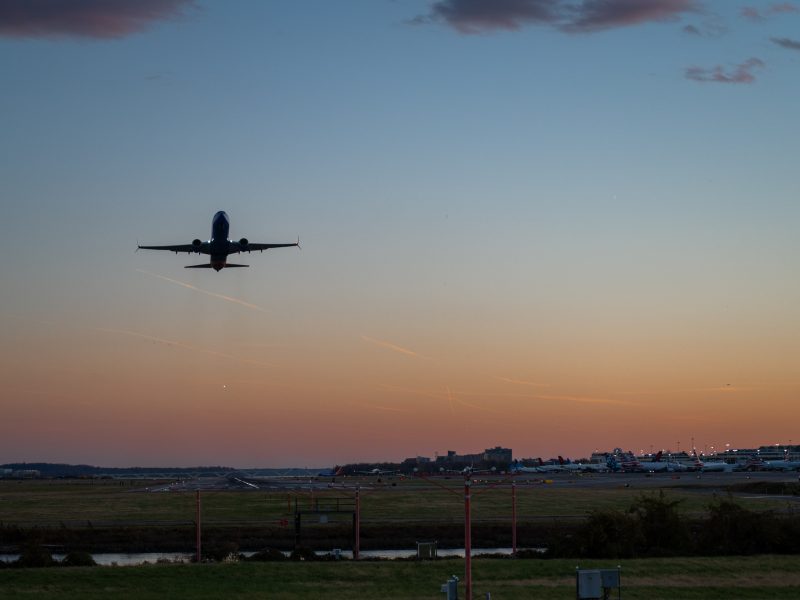Redevelopment projects along the Route 1 corridor are reshaping the cityscape, ushering students out of rented single-family homes and into new apartment buildings and creating a more urbanized look for College Park.
When all new developments are complete, College Park will have about 6,000 new beds. But as the newest housing projects begin selling student leases in anticipation of opening their doors early next year, some developers and city officials are questioning whether the supply will actually exceed the demand for student housing.
David Terry, a leasing consultant for The Varsity, said 5 percent of the building is preleased, and he expects to sell more leases as the semester ends for the 8147 Baltimore Ave. apartment complex. But he’s unsure whether the demand for student housing has been met or if it’s been overestimated.
“I think we’ll have to wait and see what happens after all the projects are done,” he said.
Nisha Majmudar, the development manager at Star Global Ventures, which owns The Enclave — the complex at 8700 Baltimore Ave. formerly known as StarView Plaza — said she is having success signing leases, mostly from transfer students and students returning from a semester abroad.
But looking forward, Majmudar said she can’t predict how much longer the demand for student housing will pervade the city.
“I think next year will be interesting, but right now, I think there is still a demand,” she said.
Several other projects, both on and off the campus, are also finished or in various stages of construction or planning, including Oakland Hall on North Campus, the University View II and III on Route 1, the Mazza Grandmarc near the Beltway entrances and a proposed apartment complex on the Maryland Book Exchange property.
Several city officials said Mazza, which is located farther from the campus than of any of the projects and not within walking distance, has had a difficult time signing leases and has yet to fill its open spots.
Mazza’s manager LaTasha Greene did not return phone calls or e-mails.
Becca Lurie, the Student Government Association’s student liaison for the College Park City Council, said the demand for student housing in the city may hinge on the possible increase in undergraduates.
“I think it’ll depend on what the Board of Regents does with enrollment,” she said, referring to the regents’ plan to increase University System of Maryland undergraduate enrollment by 45,000 students by 2020. How much that increase will affect this university is yet to be determined.
Although there is still disagreement about whether the housing market has been saturated by these projects, several city landlords said the increase in apartment buildings has had a tangible effect on their rentals.
David Dorsch of the now-defunct College Park Landlords’ Committee, who has lived in the city for 35 years, said he has seen more landlords having trouble renting recently, especially those with properties farther from the campus.
Dorsch said there might be an increase in foreclosures when competition from the high-rises makes it more difficult for renters to fill their houses.
Ilya Zusin, one of the developers who entered into a contract this summer to buy the 2.6-acre property that now houses the Maryland Book Exchange, has been another voice in the discussion. Although Zusin originally proposed that his apartments be strictly student housing, he said local officials’ opposition led him to add 109 units of what he called “young professional housing” for graduate students, researchers or other young adults.
Zusin’s decision to expand his project came after District 3 Prince George’s County Councilman Eric Olson spoke out against the original proposal, saying it would negatively impact other redevelopment efforts.
“We need to create a housing balance and start attracting redevelopment that will help spur a greater variety of restaurants, stores and housing for professionals, graduate students, as well as undergraduates,” Olson wrote in an e-mail in September.
But Zusin said he has a hard time believing young professionals would want to live downtown next to fraternity houses and bars. Student Government Association President Steve Glickman agreed, adding that students simply don’t view College Park as a place to live after graduation because, unlike surrounding areas such as Silver Spring, it lacks adequate job opportunities.
“It would be very hard to live here,” he said. “It’s certainly not a place where you would want to raise a family or a place where you would develop a career, either.”
“It’s not an extraordinary city, just a livable community, and that’s unfortunate,” he added.
mccarty at umdbk dot com


